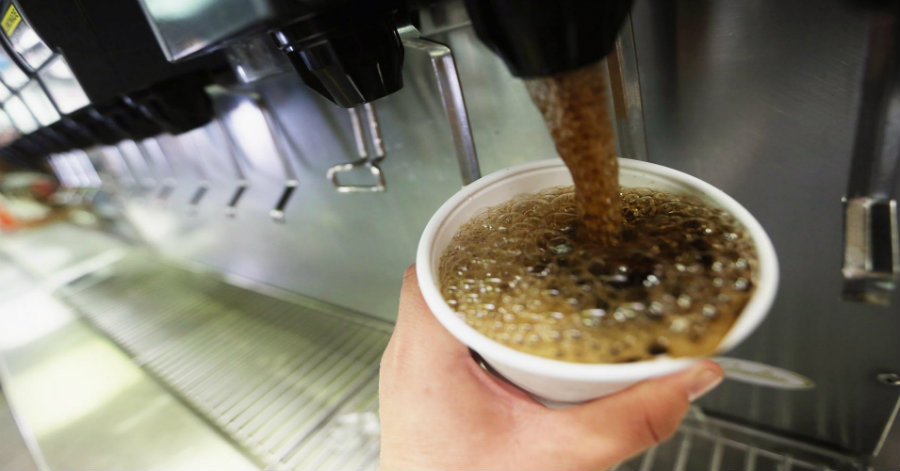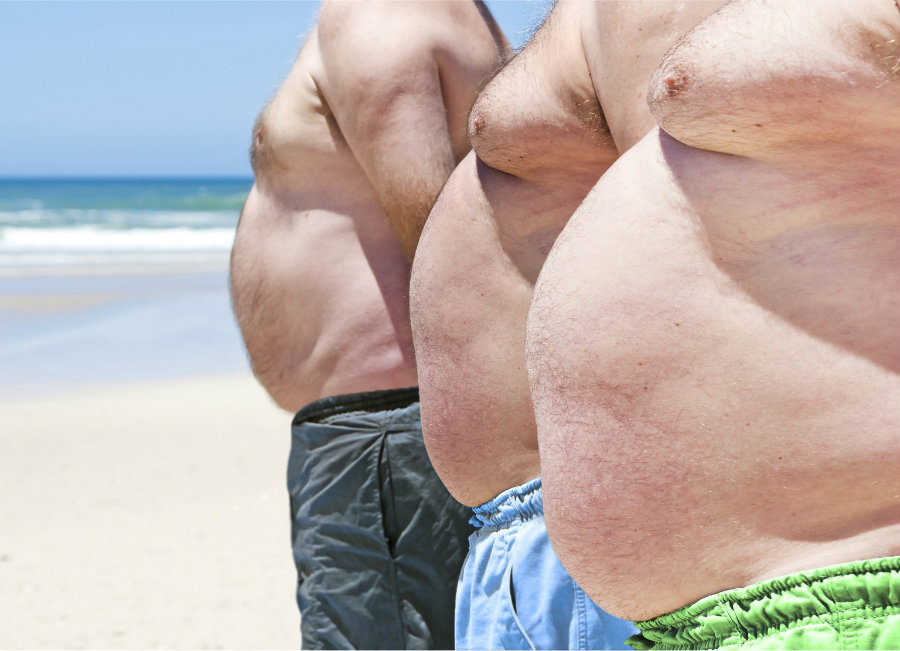A French law that prohibits unlimited refills of sugary drinks entered into force last Friday. Its aim is to reduce the consumption of sweet beverages as a way to fight diabetes and obesity, especially among youth.
France has tried to encourage a healthier lifestyle among its citizens by putting restrictions on food. Five years ago, it introduced a law to tax sweet drinks, it banned schools from having vending machines, and now it is banning the unlimited soda refills in all restaurants of the country.

Soda fountains will not be available from now on
Obesity and other diseases related to bad eating habits are an increasing concern all over the western civilization. France has been trying through the years to fight the overconsumption of sweetened drinks and fast food. Its latest move is the enaction of a new law that bans every hotel, restaurant, or school from offering unlimited refills of sweet beverages. The new law was introduced in April 2015 as a part of a larger public health law, and it entered into forced on Friday. It comes as a way to reduce obesity and diabetes, especially among the young population. From today on, it will be illegal to offer drinks with sugar or sweeteners on an unlimited basis even if they have a fixed price or they are free. This ban also affects flavored non-carbonated soft drinks, energy drinks, and sports drinks. No soda fountains will be permitted now.
In 2004 France banned vending machines from schools, then it limited how many times French fries could be served in school cafeterias to once a week. Since 2012, the French government imposed a tax on sugary drinks all over the country.
The government said that they will keep an eye mainly on foreign fast-food chains. The new French law becomes the first of the kind in the world. It follows the recommendations made in October by the United Nations’ agency, the World Health Organization (WHO), that urged countries to reduce the consumption of sugary drinks, recommending to tax sugary drinks by 20 percent.

36.5 percent of Americans are obese
Obesity is a condition in which a person accumulates such an amount of body fat that it might have an adverse effect on that person’s health. If the body mass index (BMI) of a person ranges between 25 and 29.9, that person is considered overweight. More than 30 in BMI is considered obesity.
According to a 2014 Eurostat survey, 15.3 percent of French adults are deemed to be obese. It is a little less than the European obesity rate, which was calculated to be 15.9 percent. Malta is the European country with the highest obesity rate, 26 percent, which is still significantly lower than the one of the United States given the fact that 35.6 percent of Americans fall under obesity.
Several governments are trying to adopt measures to decrease the consumption of sugar and to reduce health issues like diabetes. In several cities of United States, some taxes have been imposed on soft drinks. In Mexico, a country with one of the highest obesity rates in adults and children, they adopted a 10 percent soda tax back in 2014. According to new data, sales of sugary drinks decreased by 6 percent by the end of that year. As well, there was a 4 percent increase in sales of bottled water. In Great Britain, there are going to enact a law that taxes sugary drinks in 2018. Today, 25 percent of Britain’s population has obesity.
“We’re definitely seeing more interest in taxing sugary sweet beverages both in the United States and around the world, as there’s a growing awareness about the health consequences of overconsumption of sugary sweet beverages,” Julie Aoki, the director of healthy eating and active living at the Public Health Law Center in St. Paul, Minn.

What does the consumer say about the soda taxes?
However, resistance to this kind of measures is still high across the US. Opponents to this kind of laws say that the government should not get in the way of consumers’ personal choices, as well, the effectiveness of such measures are also put into question. They say that if people want to buy sugary drinks, they will, one way or another.
Certainly, soda taxes rejection are higher among the ones for whom these measures are taken, the obese people or the ones who are prone to develop a disease linked with the overconsumption of sugary food.
In June, as Philadelphia’s City Council decided to approve its 1.5 cent-per-once tax on sugared beverages, the American Beverage Association raised its voice to say that this law was discriminatory and highly unpopular.
“The tax passed today is a regressive tax that unfairly singles out beverages, including low- and no-calorie choices,” stated the American Beverage Association.
Last November, four cities approved a soda tax, those were San Francisco, Oakland (California), Albany (California) and Boulder (Colorado). Therefore, there are seven cities with soda taxes currently. Berkeley (California) was the first to pass it in 2014, and according to a 2016 survey, the consumption of soft drinks fell 21 percent in the low-income neighborhoods.
Source: The New York Times
